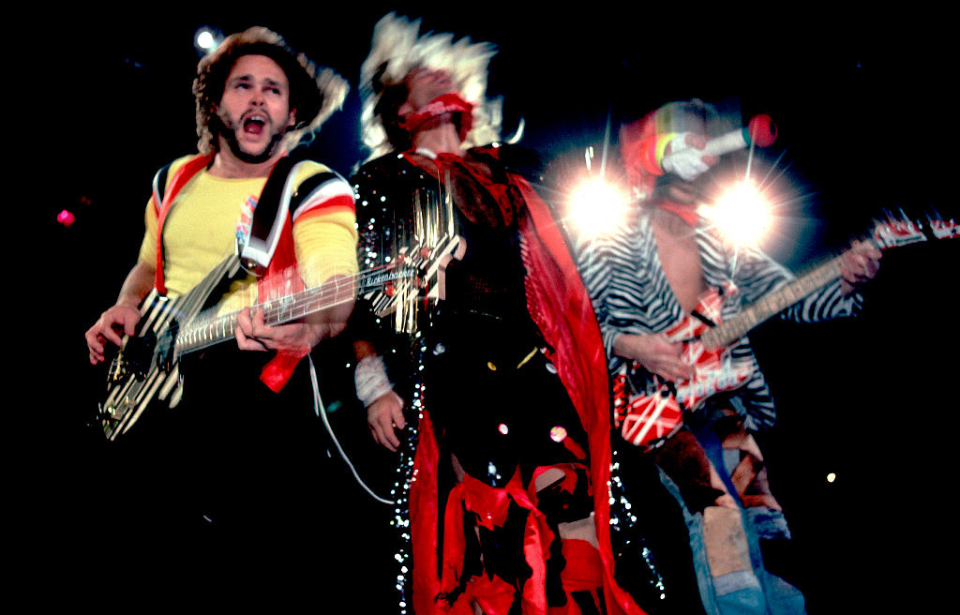As the crown jewel of Van Halen’s top-selling album, 1984, the hit single “Jump” remains an instantly recognizable powerhouse of the pop-rock genre of the 1980s that the group helped to define. The year, 1984, could arguably be the most “’80s” one of a decade that was known for the financial excesses of Western civilization and giant leaps forward in technology and culture.
While teenagers packed movie theaters to watch Footloose (1984) and Ghostbusters (1984), Michael Jackson’s Thriller, Prince’s Purple Rain, Run-DMC’s Run-DMC, Bruce Springsteen’s Born in the USA and Madonna’s Like a Virgin all had multiple singles on the charts, along with many other iconic hit songs.
While 1984 only reached number two on the Billboard charts (it was difficult for any artist to compete against the unstoppable force that was Thriller), “Jump” did hit number one as a single, due in no small part to the accompanying music video’s heavy rotation on MTV.
Read on for some facts about Van Halen’s iconic song.
Synthesizers in a rock band?
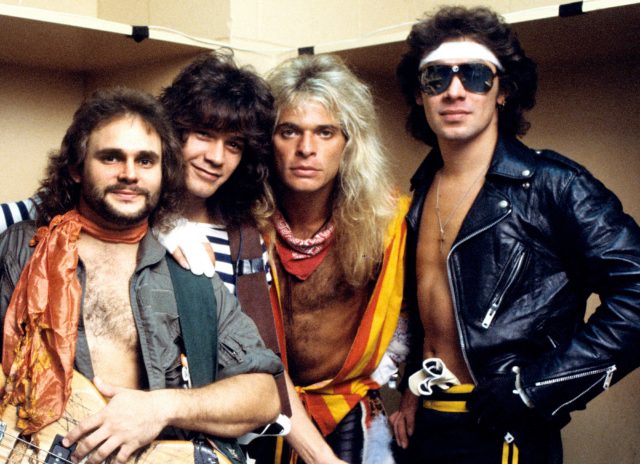
The Van Halen family moved from Amsterdam, the Netherlands, to Pasadena, California, in 1962, when Eddie was seven. Long before he and brother, Alex, became rock gods, they won local classical music competitions while still in elementary school, playing piano. Surprisingly, Eddie’s piano teacher never trained him to read music – he learned by ear and from watching others.
While many of their hard-rocking fans may have felt the keyboard-laden 1984 was a departure from their earlier guitar-heavy releases, for the Van Halens, it was really more of a return to form, instrumentally. In fact, they had been using keyboards for years – just listen to “Sunday Afternoon in the Park” and “And the Cradle Will Rock…“.
Eddie’s guitar playing on these earlier tracks was so sonically dynamic that, at the time, most people assumed the keyboard parts were made with some new technique done with strings and tremolos on the guitar.
Van Hall and Oates
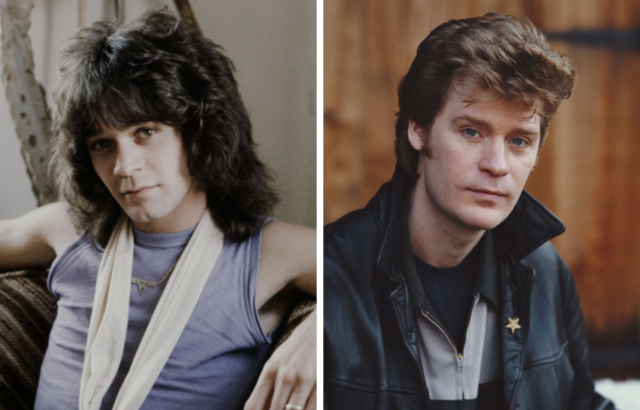
Eddie Van Halen had been pushing for years to incorporate more keyboards into the band’s music, but their producer, Ted Templeman, and David Lee Roth both felt it was safer to stick with the guitar-driven model the fans loved.
After the construction of Eddie’s 5150 home studio, he had the freedom to develop his ideas without the scrutiny of other band members, and one of the inaugural recordings was the music for what would eventually become “Jump“.
According to Daryl Hall of Hall and Oates, Van Halen admitted to him years later that he’d used the chords from “Kiss On My List” as inspiration for the single. “I don’t have a problem with that at all,” Hall said at the time.
What does it all mean?
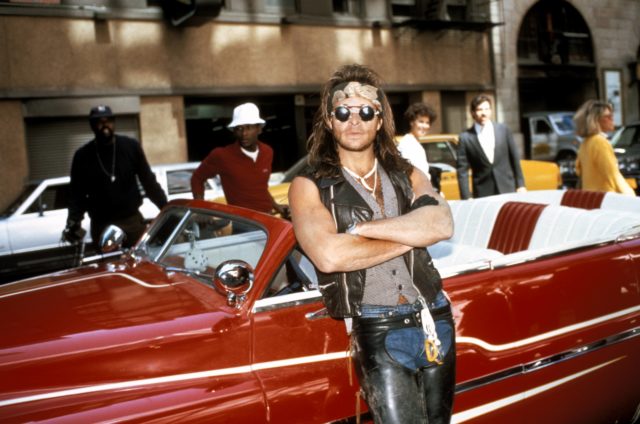
Aaa-ohh, hey you!
Who said that?
Baby, how you been?
You say you don’t know
You won’t know until you begin
-David Lee Roth, “Jump”
When tasked with writing lyrics for the new music that had just been presented by the Van Halens, David Lee Roth handled the assignment in typical rock star fashion: he asked his roadie, Larry Hostler, to chaufer him around town in Roth’s 1951 Mercury convertible, blasting the demo and waiting for inspiration to strike.
It was during this drive that Roth recalled watching a news report the previous evening about a man threatening to end his life by leaping from the top of the Arco Tower in Los Angeles, California. In an interview with Ultimate Classic Rock, he recalled:
“There was a whole crowd of people in the parking lot downstairs yelling, ‘Don’t jump, don’t jump!’ and that gave me the idea of ‘Jump’ for the title. I wrote it down and it made it onto the record, although in a much more positive vein. It’s easy to translate it the way you hear it on the record as a ‘go for it’ attitude, a much more positive sort of affair.”
Fallout and breakup of Van Halen
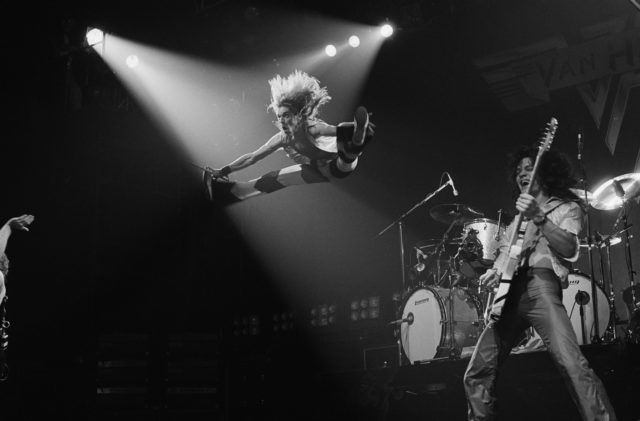
“Jump” was Van Halen’s biggest hit, but the new level of stardom it thrust the band into proved too much for the already thinly-stretched relationship between the Van Halens and David Lee Roth. Eddie had proven there was room in rock music for synthesizers and Roth had emerged as a triple threat of frontman, vocalist and, now, award-winning director for his work on the single’s music video.
In the end, it was all too much for the band. The final straw was Roth’s solo EP, Crazy from the Heat, becoming an instant hit in 1985. He was dismissed within weeks of its release.
Van Halen’s later years
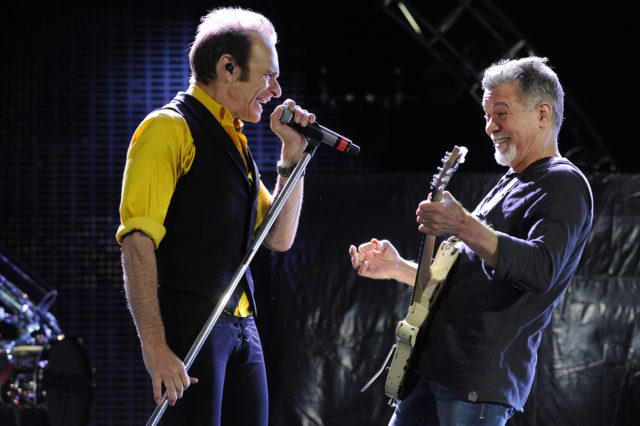
Van Halen went on to hire Sammy Hagar to fill the void left by David Lee Roth and, despite some controversy among fans, they had a very successful run of hit songs and albums. Roth had a successful solo career, assembling a band of top-notch musicians, including Steve Vai, to fill the role of electric guitar virtuoso.
More from us: Simon Says Guess: Who Is Carly Simon’s “You’re So Vain” Really About?
Want articles by The Vintage News delivered straight to your inbox? Subscribe to our weekly newsletter!
In 2007, the original line-up, sans bassist Michael Anthony, came together for a reunion tour. They also released one final Van Halen/Roth album, A Different Kind of Truth.
